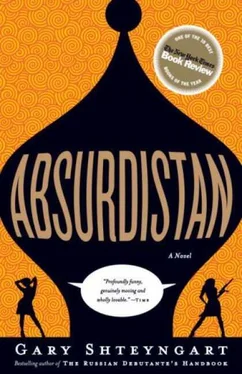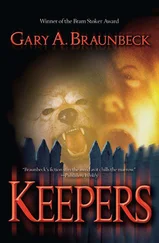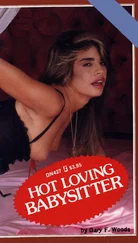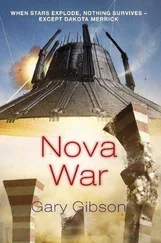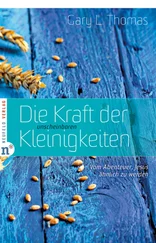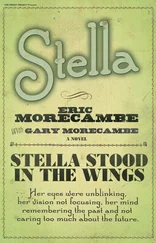“Well, what can be done?” Nanabragov shrugged.
“I believed in you,” I said. “I thought we would make something better. All the people really need is a little hope and encouragement. They’re hardworking and clever.”
“This country is nothing without oil,” Nanabragov said. “Sevo, Svanï—it makes no difference. We’re a feudal nation. We have a feudal mentality. It was all perfectly fine during the Cold War. We were taken care of by Moscow. But now the world changes so quickly that if you’re even one centimeter behind, you’ll be behind forever. When you compare us to all those Chinese and Indians, you know we’ve got no business being in the race. We need to find a new patron.”
“But the young people aren’t like that,” I said. “My friend Alyosha says they can burn hundreds of pirated DVDs in seconds. They can hack into anything.”
“Sure, they can burn and hack,” Nanabragov said. “Give me a torch and I’ll set the whole place on fire. I’m telling you, anyone who’s the least bit smart around here fled to Orange County a long time ago.”
“So you destroy a country because it’s not competitive. What kind of reason is that?”
“It’s the best reason, Misha. Nowadays, if you don’t have natural resources, you need USAID. You need the European Bank for Reconstruction and Development. You need Kellogg, Brown and Root. If only we could get on America’s top-ten list and score big like Jordan or Egypt. Or Israel.”
“Why did you kill Sakha the Democrat!” I shouted. “He wasn’t just some third-rate peasant. He was one of us. ”
“Federal forces killed Sakha. It wasn’t the SCROD.”
“You planned it together with the Svanï. First thing you did was get rid of the democrats.”
“A lot of good they were. Rotten intelligentsia. Couldn’t tie their own shoes. What are you doing, Misha? Oh, for God’s sake. Stop it! Men don’t cry. You look funny. Such a big man in tears…What would Nana say if she saw?”
I shook down to the most ridiculous parts of me, tears flying in every direction but upward, like the oil gushers that had failed to materialize. I could still hear Sakha’s tender bleating, his last words, which had been addressed to me. Mishen’ka, please. Tell them to stop. They will listen to a man like you. Please. Say something.
Mr. Nanabragov came up to me. He raised his hands as if to embrace me, but they twitched out of position. He stood there jerking silently. “Misha,” he said. “Don’t take my Nana away from me.”
“What?”
His eyes were filling up with water and rainbows. “You don’t understand what it has been like without her,” he said, sniffling. “When she was at NYU and my Bubi was studying Ethnic Musicology at UCLA, there was nothing for me…nothing to live for. People like your father and me, we’re of a different generation. Family is what we know. We can’t live the way people do now, one child in San Diego, one in Torrance, one in the Valley.” He wiped at his eyes.
“Surely you don’t mean to leave her here, ” I said.
“You can both stay. Get married. After the Russian bombing next week, things will settle down. You’ll see. I’ll give you a piece of the cigarette action, not that you need a piece of anything.”
“But we’ll die here,” I said, wiping my raw nose.
“Not necessarily. Don’t you understand? I’ll do anything to keep her. You’re your father’s son. He killed an American just to make sure you wouldn’t leave him.”
Seagulls were circling low over the dead sheep, and the Lapdog waiters were fingering their pistols. I remembered the seagull attacking the British kid on the videotape of my father getting decapitated. Everywhere I went, birds of prey were looking for an in. I stared at the smoke-gray sky above us, black smoke from the Lapdog grill, the haze wafting from the still-burning city. “Misha,” Mr. Nanabragov said. “Misha. How can you fault me? Your father killed an Oklahoman to make sure you couldn’t go back to New York.”
“I know,” I said simply.
“He wanted to keep you near him. He missed you so much. Is there anything more important than a father’s embrace?”
“Nothing,” I whispered.
And then Mr. Nanabragov was around my neck, crying and jerking and humping my leg. They still couldn’t stop smelling of rancid sweat, our old men. All those French colognes and moisture gels, but that fundamental rank still lingered in their armpits. “Misha!” Mr. Nanabragov cried. “You have to promise me that you won’t take my Nana away from me.”
I felt him contracting around me, twitching in time with the slowing thump of my own heart. “I would be very angry if you did, Misha,” he said. “So you have to promise me she won’t leave.”
I felt his bitter drool on the back of my neck. “I promise,” I said.
42

Saltines and Fresca
We left a few days later. It was September 9. The day was light and airy and spoke of deliverance from the summer’s heat. The train station was on the Svanï Terrace, but we didn’t bother with any precautions. The SCROD and federal checkpoints had disappeared completely, and Svanï and Sevo citizens staggered around without hindrance, free to die on any terrace they chose.
We stood in the waiting room beneath a fading picture of the Svanï dictator Georgi Kanuk, upon whose grave octogenarian visage one commentator had written #1 TERRORIST and another FATHER OF THE NATION. Nana’s mother had sneaked out of the house to say goodbye to us. Removed from the courtyard and the kitchen, she was a surprisingly different creature, feisty and emotional. The afternoon sun had touched her pale homebound cheeks. While she wept prodigiously at her daughter’s departure, she did so with an almost reticent delight. “God will bless you,” she kept saying to me and Nana. “In Brussels, in New York, wherever it is that you go, God will follow your footsteps with a father’s eye.”
“Tell Papa my heart is breaking,” Nana said. “Tell him I’ll come back as soon as the war is over, so maybe they should try to wrap it up by the Christmas break. By the way, is there any money in the Citibank account? I still haven’t paid the bursar.”
Mrs. Nanabragovna wiped her tears. “Now you’re with Misha,” she said, pointing to the general area around my wallet. “Misha will be your father, and there will always be water in his well for you to drink.” Mother and daughter smiled and embraced each other.
I was angry and disgusted with the Nanabragovs, but I couldn’t help being moved by their parting. “Be careful, little mother,” I said to Mrs. Nanabragovna. “The Russians are planning to bomb the city next week. You must take shelter in your basement.”
“Oh, they’ll never bomb our house,” Mrs. Nanabragovna said with a dismissive wave. “They’ll just make a loop around Gorbigrad.”
We were escorted onto the train by an army of men wearing homemade fatigues with the words AMERICAN EXPRESS RAPID REACTION FORCE. Our self-appointed protectors handled us roughly, like the soldiers they were, banging our laptops against the gravel and pulling us by our sleeves. We cursed their mothers under our breath and yet rejoiced at the presence of their formidable armaments, in particular the tank-busting cannon being dragged ahead of us.
The platforms were deserted. All the rail lines had been bombed into torqued ellipses of the kind made popular by a certain American sculptor, save for one upon which the American Express locomotive and two wagons idled. They were old wide-gauge Soviet cars brought up to gleaming Western snuff. The locomotive sported a silk-screened AmEx logo. Absurdi children had painted the wagons with scenes of a better life for themselves, earnest depictions of dark-haired boys and girls wearing Svanï and Sevo crosses, flying happily between the Eiffel Tower, the Houses of Parliament in London, and the Leaning Tower of Pisa. YOU’VE GOT TO PLAY TO WIN, the children had written in large green English letters beneath their impossible fantasies. The roofs of the train cars were occupied by more members of the American Express Rapid Reaction Force nailing down their RPG launchers and waving a Colorado’s worth of small arms at the sky.
Читать дальше
